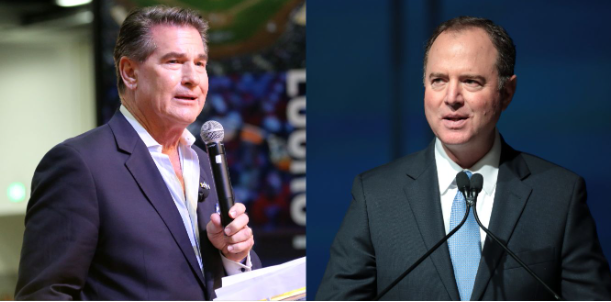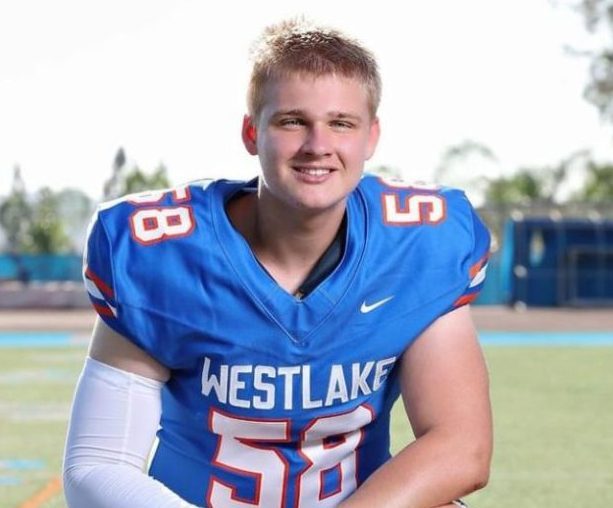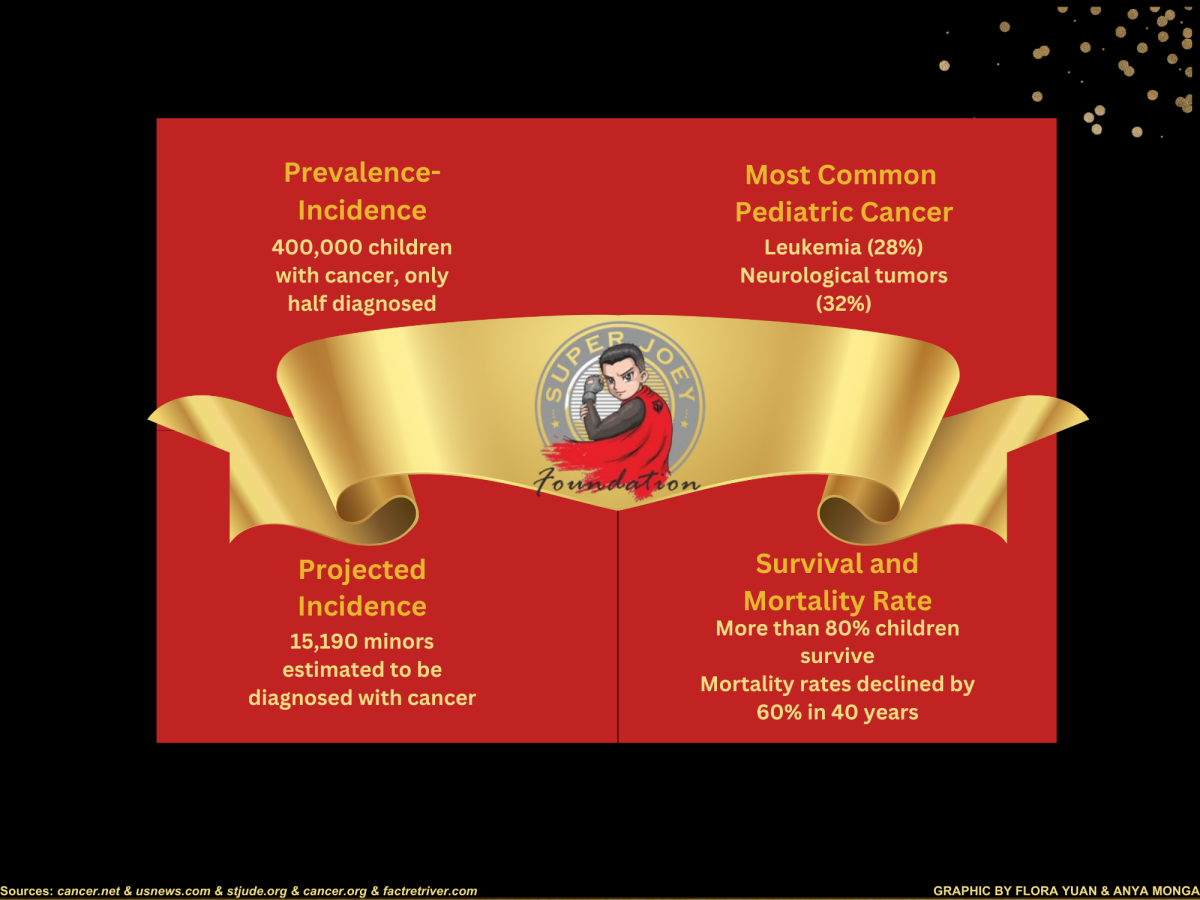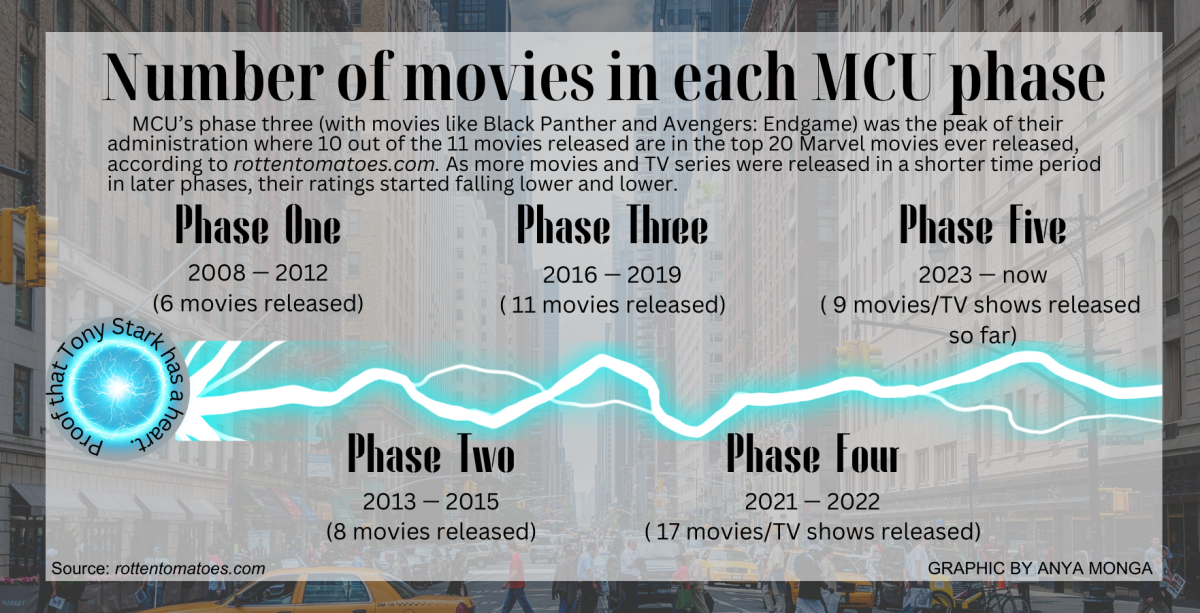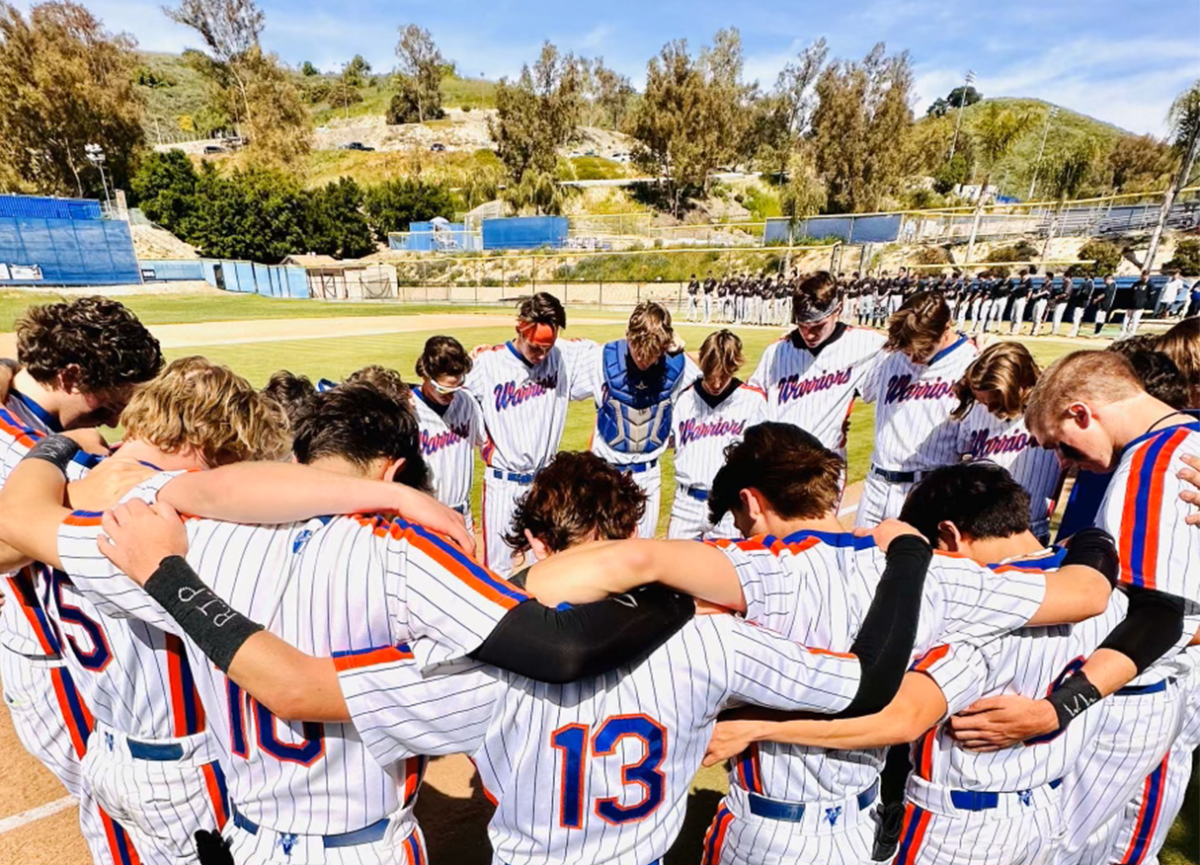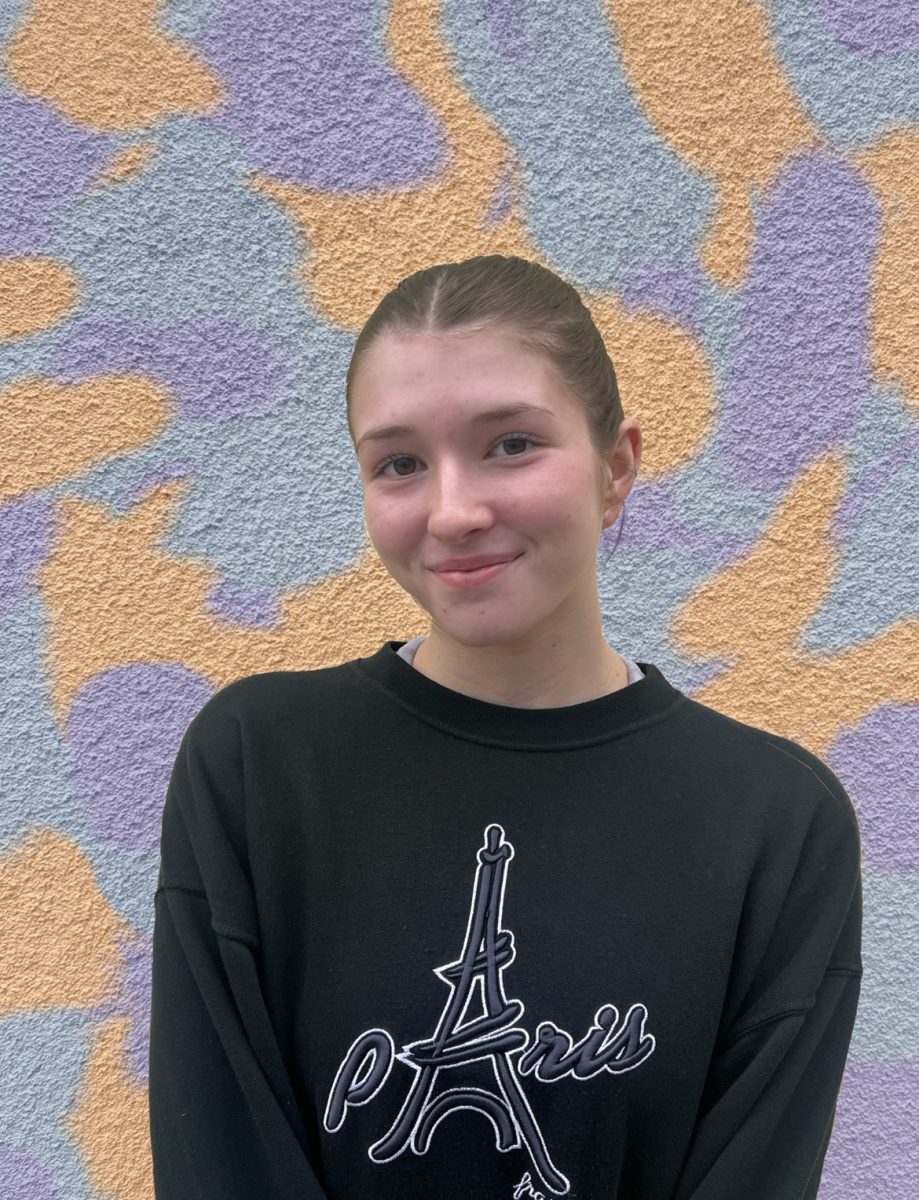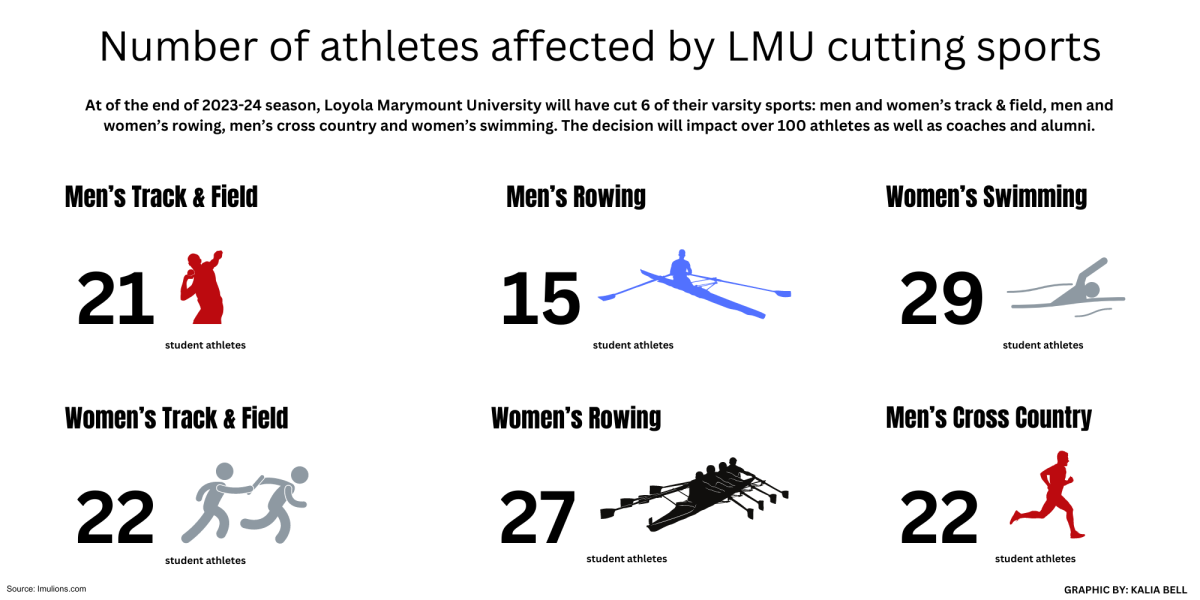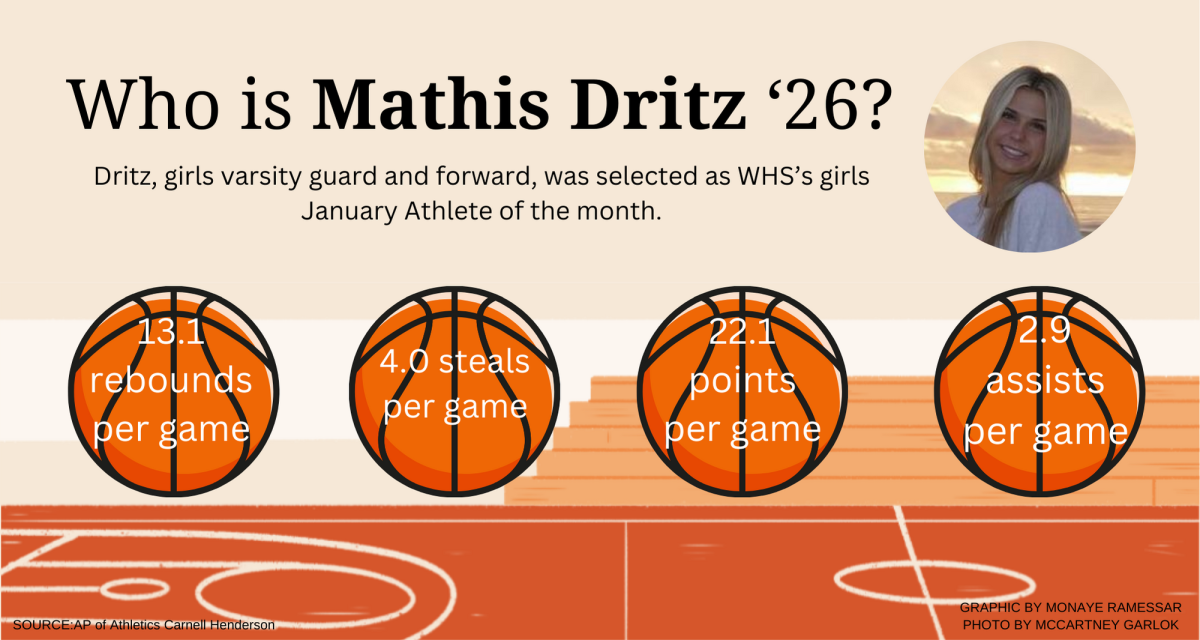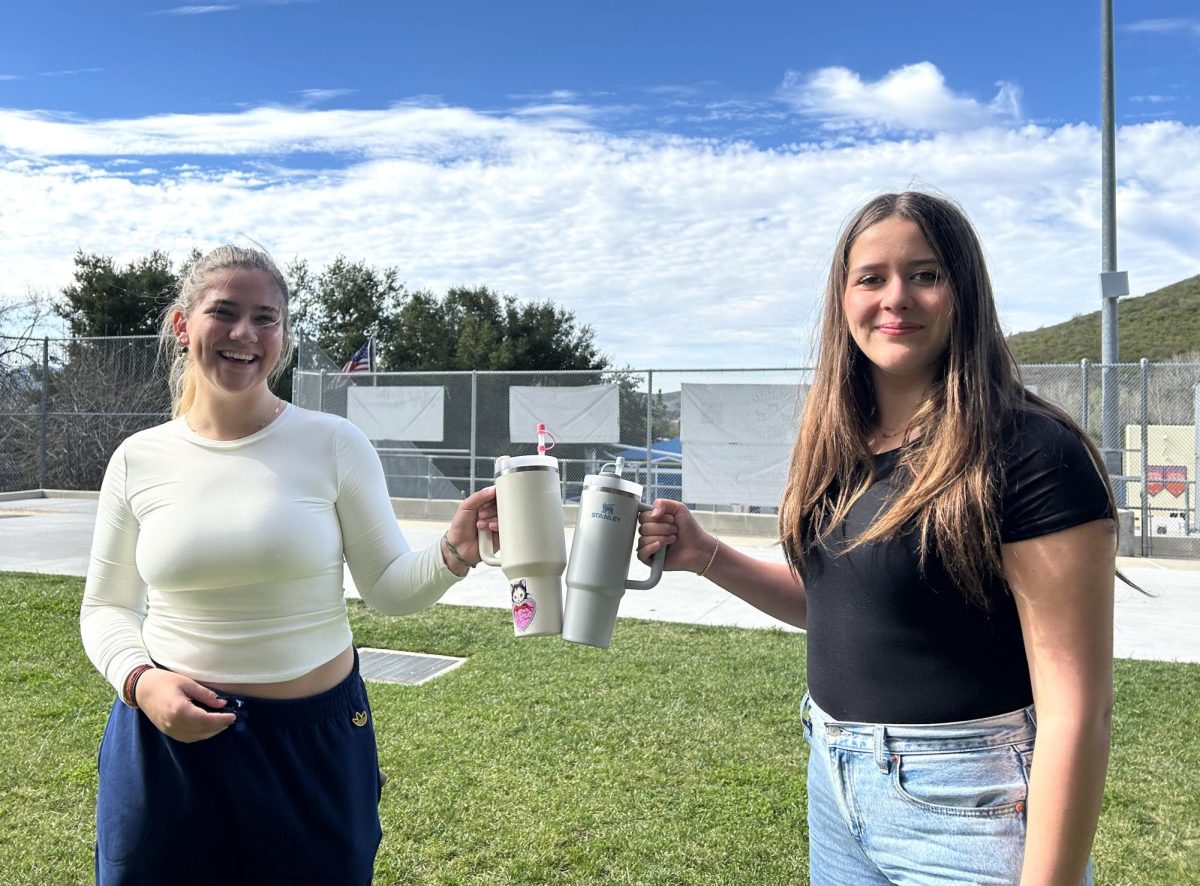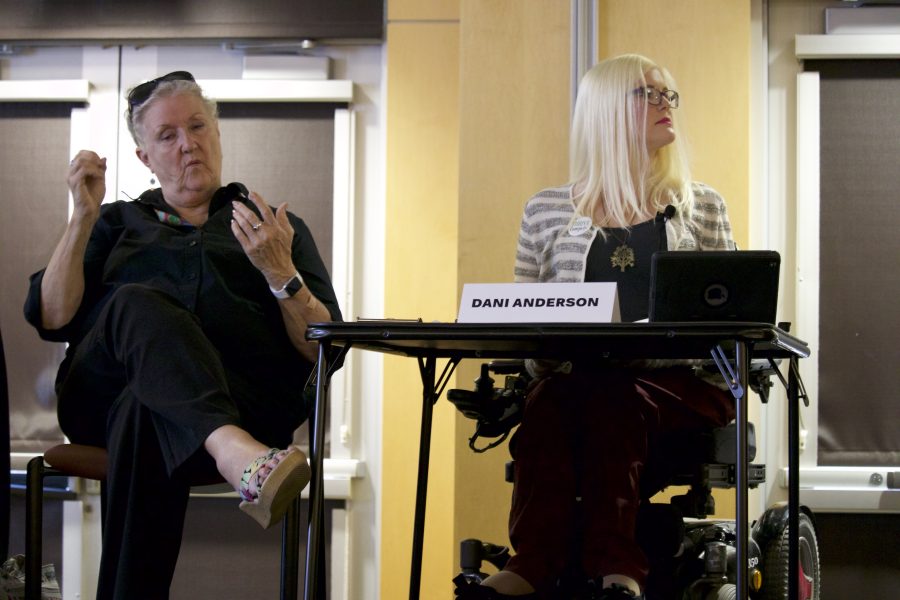Megan King ’19, Caelyn Pender ’19 and Milla Wu ’19
On Thursday, Sept. 27, THRIVE Conejo hosted a school board candidate forum at Lundring Events Center at California Lutheran University.
THRIVE Conejo is a “nonpartisan grassroots organization dedicated to advancing inclusive education within the Conejo Valley Unified School District to benefit [all] students of [all] abilities,” according to the official press release for the forum. The organization was founded by Cindy Liu and Lee Ann Holland in 2017, and now has more than 300 members, including parents, teachers and community members.
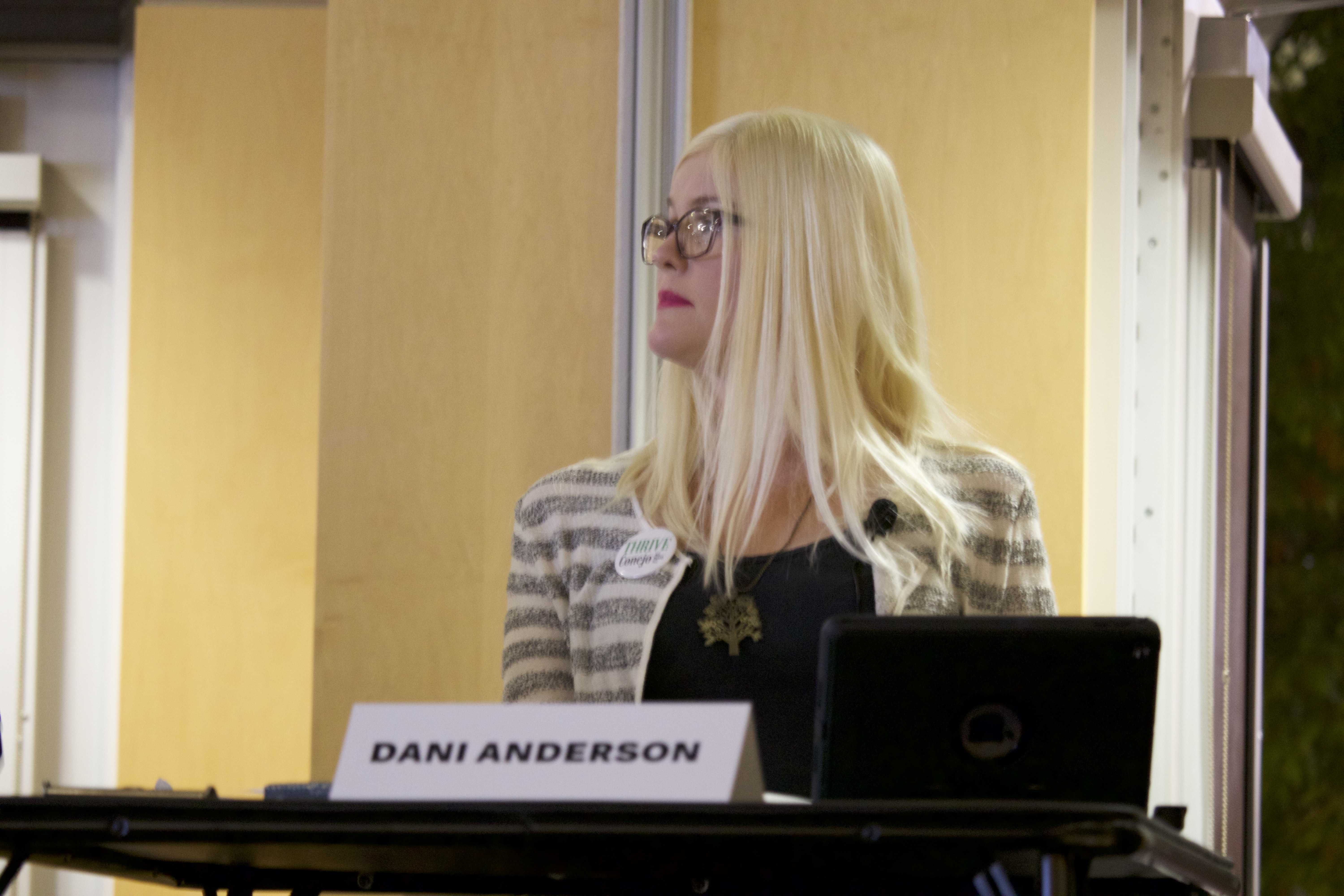
THRIVE Conejo recruited Dani Anderson, the executive director of the Independent Living Resource Center and an alumna of Thousand Oaks High School, to moderate the panel. A sign language interpreter was present at the forum to translate the proceedings to sign language.
All eight school board candidates — Patrissha Rose Booker, Dr. Amy Chen, Mike Dunn, Jenny Fitzgerald, Cindy Goldberg, Bill Gorback, Angie Simpson and Marlon Delano Williams — participated in the forum. Each candidate began by sharing a pre-planned opening statement in order of seat. Afterwards, there was one question asked to each school board candidate and several that were asked to two particular candidates. Each individual candidate then answered one randomly-drawn, audience-submitted question. The forum ended with each candidate sharing a closing statement.
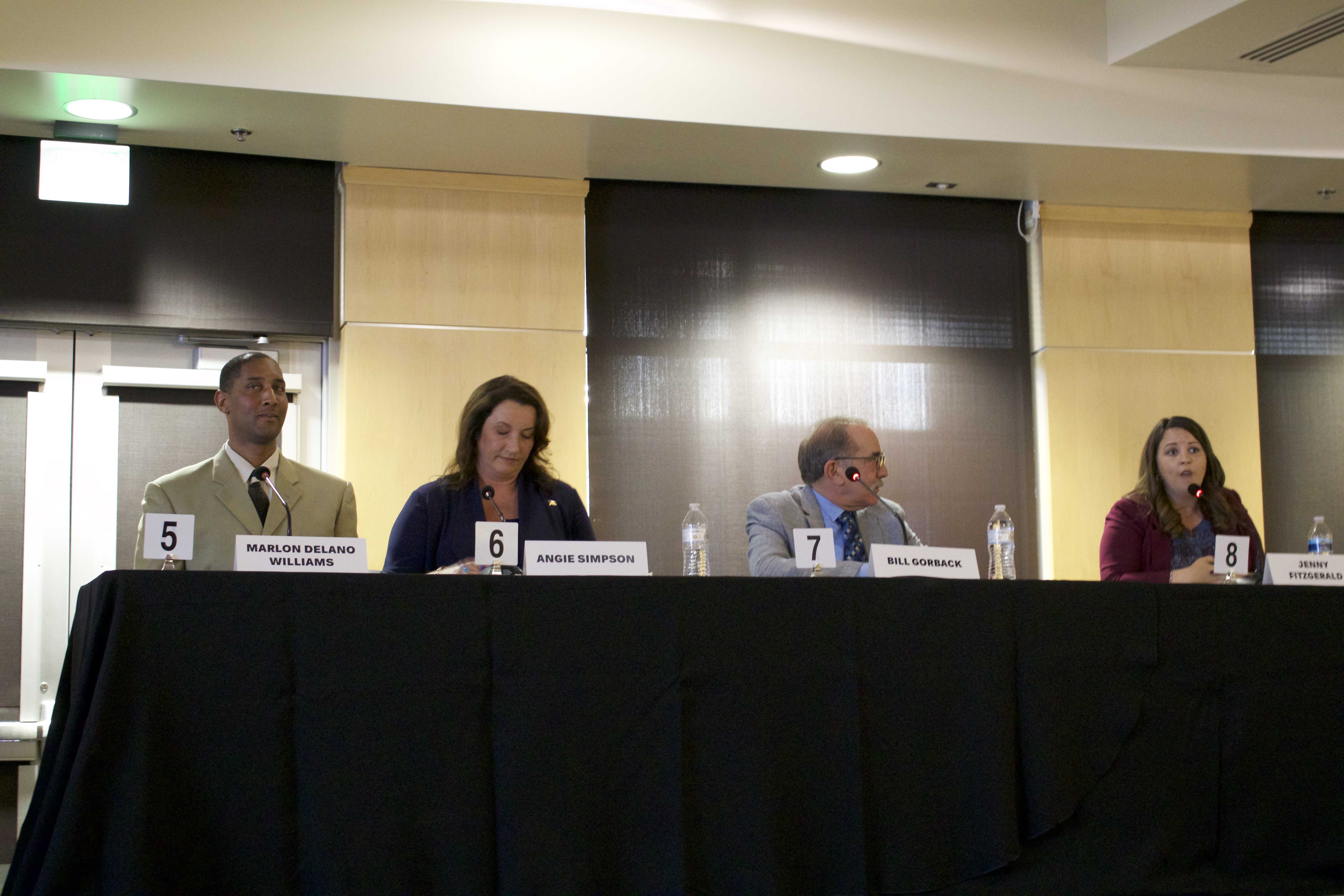
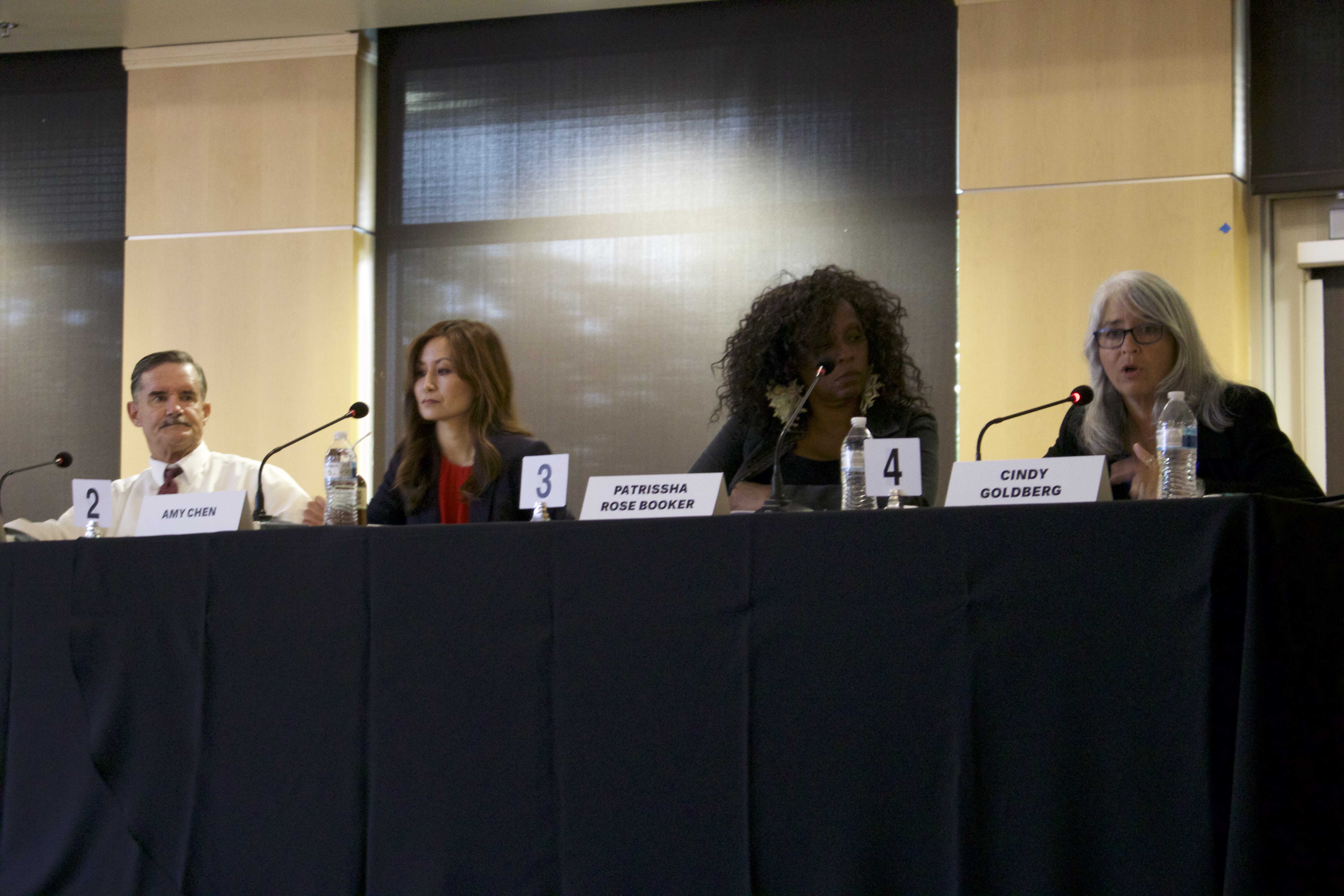
To jump directly to a candidate, click their name below:

Marlon Delano Williams
In Williams’ opening statement, he said that he is a paraeducator for the CVUSD and that he feels like every candidate “has the same goal, which is to make our children exceptionally well-educated students and able to be successful in life.” He graduated from TOHS and is “motivated by the students of Conejo Valley.”
In his response to the first question about inclusion, he said that “inclusion is the adaption of special education into the regular classroom.”
“When I was in school, we didn’t have that,” said Williams. “Working with the school district and with children with special needs, I find that it is important for students to be in the classroom setting with other students who are helpful and aiding the students with needs.” He continued to explain that teachers will benefit from assistants to help them manage the classroom.
To help support the four student groups the California Dashboard reports that the CVUSD is under-serving, Williams believes that hiring additional classified staff would help the four groups.
“The students need support,” said Williams. “They need our support as a community. If we can hire more people, that will allow jobs to open up for people that need them … the students definitely need the assistance and the teachers need the assistance.”
In the same response, he continued that the district should provide meals to low-income students.
“I think that students go to school hungry, and if they can’t afford breakfast, then we should able to provide it for them,” said Williams. “If the students are hungry and they go to school, they are not going to be able to get the proper education that could get. We need to find every means necessary to support all of our students.”
In response to a question about the role of religion in school curriculum and policy-making, Williams said that we are fortunate to live in “a country that is bound by many different religions and ethnicities and cultures and different walks of life.”
“Because of this, we can learn from each other,” said Williams. “We can learn how to be great citizens if we can learn from others about their religions and about their cultures. Putting this into our school district only opens up everybody’s minds about what other people’s lives are like.”
Replying to a question about how to make teachers feel more valued and supported, Williams said that he thinks “we have a great staff in the district.”
“The best thing to do is to educate our teachers and have them involved with group learning projects so that they can go out and learn from each other about how to improve their education,” said WIlliams. “Teachers feed off of each other and learn from each other so they can help the students find the best education that they can.”
In response to a question that asked how he will ensure student-led IEP processes, Williams said that he agrees with Goldberg that it is “about the students.”
“The students should be able to determine what is best for them,” said Williams. “Also, as educators, we need to find out what going to be the best fit for students on their education. All students are going to learn differently, so we need to find out what the differences are that will help the students learn.”
He continued to say that although it isn’t the responsibility of board members to be present at IEP meetings, he will still try to find a way to get the best possible methods for student success.
To better destigmatize the mental health needs of our school community, Williams said our community has a lot of support groups.
“The important word that we’re listening to is community,” said Williams. “In our community, we have a lot of support groups. Our support groups for our students. We have support from the Conejo Recreation and Park District, we have support from the Thousand Oaks city, we have support from our local law enforcement. We also need support from our businesses, we need support from our parents, we need community support for our students … We need to make sure that the students feel safe, in our schools and outside of our schools. In order to do so, we need to teach all of our students on the safeties of life.”
In response to a question about how to provide in-class support to all GATE students, including “twice-exceptional” GATE students, who also have disabilities, Williams said that from his background of working in schools, he finds that student engagement is important.
“The students … might sit there with their head on their fist, daydreaming about where they could possibly be besides the classroom,” said Williams. “As an educator, we need to find a way for the students to maintain the information that they are going to learn … In order to do so, we have to educate our staff and our teachers about how to incorporate the students [into] the lessons.”
The question Williams drew that was directed only at him was in regards to the strongest measure of success in education, to which Williams replied was students finishing high school.
“They graduate with grades that will get them to college or a career that will enable them to live,” said Williams. “It’s tough to live, it’s a really tough life out there … So the students are going to find out the easy way by our education or they’re going to find out the hard way by living.”
He continued that students should go on to want to be beneficial to society and to be a positive influence on others.
In his closing statement, Williams said that he is inspired by the children of the district.
“I mean inspired because they are the future,” said Williams. “The people have done a lot to put this world in a very bad place. It’s going to be up to the students [to] bring it back to what we would like it to be. I would like for the students to be aware of this, and most of them I think are … They have ideas that blow me away, and I appreciate that.”

Angie Simpson
In her opening statement, Simpson said that she is a former teacher in the district, previously teaching English and dance, and also coached volleyball, was on site council, and is a parent of four kids with diverse learning needs.
“As a school board trustee, I want to ensure that CVUSD has the right educational options for all types of students and all types of learners across the educational continuum.”
In her response to the first question about inclusion, Simpson said that the first person who she thinks about is her stepson, who has “been part of the special education ecosystem since kindergarten.” She continued that in his special day class, his classmates rarely shared interests outside of being in the same class, and many of them did not live in the same community, which made it “tough to facilitate social interactions that most kids and families enjoy as part of neighborhood school environment.”
She continued to say that as a former teacher and parent, inclusive education means “students are welcomed by their neighborhood school to participate in age-appropriate classes to learn, contribute and participate in all of the different aspects of our public education system.”
If given more money to support the four student groups the California Dashboard reports that the CVUSD is under-serving, Simpson said that it would be “important to strengthen the support for our general ed classrooms with that money, and definitely involving the experts, the teachers, the administrators, to come up with a concrete plan. ”
“I believe that strengthening the support of general ed classrooms will ensure that more classrooms and programs are equipped to better serve these special groups of students,” said Simpson. “As a school board trustee, I’ll be there to champion and listen for the needs of all the different students and families. As a trustee, I’ll advocate for more training and meaningful staff development for our teachers to further enhance the program offerings of our general education classrooms in order to accommodate more students.”
She continued to say that she would support “innovative teaching strategies” that are “validated by outcomes-based research.”
In response to a question that asked how she plans to educate policymakers about the role of K-12 in creating an environment that supports education throughout the lifespan, including apprenticeships, internships and work training programs, Simpson said that there needs to be a person on the school board “who’s really willing to get out there and do the work to build bridges and foster a collaborative relationship among all the different stakeholders.”
“I think that it would be optimal to consider these types of programs and talking about dreams of our kids from early on in their careers as students all the way through and providing role models throughout the community to help facilitate the ability for all different students to dream,” said Simpson. “[We should] consider who they are today and also how can they, as individual unique learners, maximize their potential and be contributing to society in a way they feel happy … throughout adulthood.”
In order to ensure teachers feel more valued and supported, Simpson said that “as a school board trustee, I would definitely make attracting and preserving high-caliber talent a priority.”
“As a teacher in this district, I can understand the challenges that are put on young teachers and how it can be very overwhelming without the right support system in place,” said Simpson. “I would definitely support a mentoring program out of the gates for our younger teachers and encourage our administration to hold annual career pathway and career development programs.”
She also believes it is important to “foster the genuine interests and passions of our teachers” and “give them opportunities to create research-based programs and really put themselves in a position where they can feel empowered to make a difference and capitalize on their strengths as professionals.”
In discussing the role of the school board in regards to the adjusted LCAP goals, Simpson said that the role is to “ensure the benchmarks, goals, long-term planning and short-term planning is being executed by the administration.”
“It’s not to get in the weeds, for me as a trustee,” said Simpson. “It’s not about implementing specific strategies coming from me independently. It’s about being there to oversee and bring a community voice to represent the taxpayers and to ensure that our schools are representing the needs of a diverse community and all of the different community members within CVUSD are benefitting from [a] high performing school district.”
In a question about how school choice can help meet state expectations for inclusion, Simpson said that a lot of parents feel like special education in CVUSD “is about the place, versus the program.”
“I believe that successful inclusion is about finding the right balance of academic, social and the sense of self to meet the needs of each individual student,” said Simpson. “I look at these three prongs … as the core benchmarks in the heart of inclusive education.”
Simpson supports “more inclusion and more support to general ed classrooms” but does not want to “take away all the different centers of excellence that we do have established in the Conejo Valley” in order to “provide choices to parents.”
When discussing how high schools can better partner with community colleges, Simpson said that there should be “earlier outreach to parents.”
“There’s a great opportunity for more parents in our community to start understanding and start planning more smartly with the community colleges in the back of our minds,” said Simpson. “As a parent here in southern California, the community colleges are such a strong way for families to save resources and help our kids get into our awesome state schools.”
For families moving out-of-state or families with less knowledge about the college process, Simpson said that informing parents sooner can “capture those enrollments.”
In a question Simpson drew, directed only at her, about her children in the CVUSD, she said that she is a mom of four kids and stepmom of three. Her son is a fifth grader in the CVUSD. She continued to say that she is a working parent, so she chose her neighborhood school because of its accessible after school care that was within walking distance.
“As a school board trustee, I will represent the people, and I will have pride and passion about what our community brings,” said Simpson.
In her closing statement, she said that she cherishes the community, and she is running for the school board because she has “a genuine passion for learning, children and community leadership.”
“As a school board trustee, I pledge to ensure that your tax dollars are being spent wisely and that our schools are safe and that all of our children receive the best possible education,” said Simpson. “I will work to build bridges, and I will be honored to have one of your three votes.”
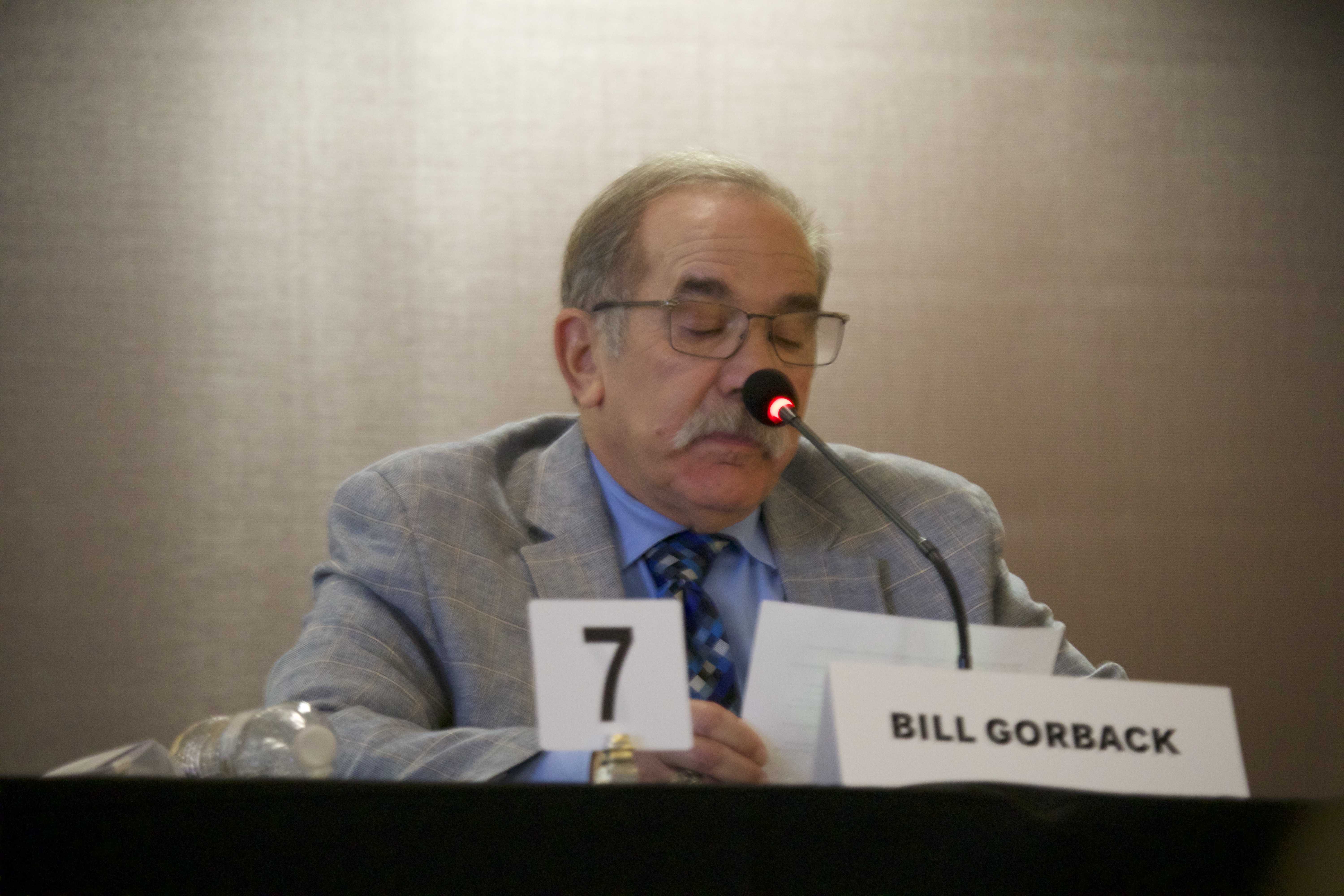
Bill Gorback
In his opening statement, Gorback said that he has taught in public schools for 20 years, from second grade to high school and adult school and has been a school counselor for 18 years. He continued that he “has always advocated for student success and the greatest and most expans[ive] … learning environment for all students.”
In Gorback’s response to the inclusivity question, which was given to the candidates beforehand by THRIVE, he stated that inclusion is “an attitude.”
“Inclusion is a commitment,” said Gorback. “Every student should feel that that they are part of the learning environment at their school. Inclusion is the placement of students in the best educational setting where that student can best engage in the appropriate curriculum for their grade level and ability level and the least restrictive environment.”
If given more money to help support the four student groups the California Dashboard reports that the CVUSD is under-serving (students with disabilities, English language learners, low income students and Hispanic/Latino students), Gorback said he would like to hold listening sessions throughout the district to see “what all of our district stakeholders feel would be the needs of the district.”
He also would like more “parent education programs” to increase parent involvement and hire more staff, including at least one or two evening counselors who could work a 1-9 p.m. shift to deal with home problems on the same night.
In response to a question concerning the role of religion in school curriculum, policy and board decision-making, Gorback said that “we follow the Constitution.”
“We have a diverse community … that involves a lot of different religions,” said Gorback. “However, we also fall under the Constitution of the United States, which has a separation of church and state … Decisions should be made by law, … [and should] be kind, which is universal in all religions.”
For students in our district with disabilities, who have a disproportionately high suspension rate, Gorback said that one of the district’s LCAP goals is working on the social and emotional growth of our students.
“Misbehavior comes from social or emotional frustration, so what I would do is try to find out, try to learn [and] try to work with those students in communication [to] find out what is the frustration that that student is suffering [from],” said Gorback. “Social and emotional growth and lessons help all students to respect and have better behavior in the classroom and on the playground. I work to continue that, to increase that and to develop that.”
Regarding how to help students and families of all groups receive all information, individualized education programs and resources in the appropriate language, Gorback said that he has experience facilitating IEP meetings in many districts.
“I’m familiar that the first step is to invite all those that are going to be participating to the IEP,” said Gorback. “When you send that out to the parents, it should be a required part that you ask the parents if they have any needs that need to be addressed, including language.”
He continued that the district needs to meet those needs and that parents should feel “free and comfortable” to have a translator at the IEP meetings.
To incorporate student concerns into the board’s decision-making process, Gorback said that he believes that currently the board does not hear the student voice “as much as we should.”
“Our students are doing their share; they’re speaking, they’re passionate, they’re articulate,” said Gorback. “We just don’t pay attention to them, so what I would do is I would make students part of the board panel — either one from each [school] cluster or at least one student on the board to contribute to the conversation.”
He also wants listening sessions throughout the district because “there’s a lot of people — parents, students, teachers — that don’t feel comfortable coming to our board meetings every other Tuesday night.”
“What I would do is have listening sessions at various schools with one other board member so we don’t violate the Brown Act,” said Gorback. “Go to the schools and … get the input of students as well as our other stakeholders. Let’s give students a greater voice.”
To provide in-class support to all Gifted and Talented Education students, including “twice-exceptional” Gifted and Talented Education students, who also have disabilities, Gorback said that “all curriculum can be scaffolded.”
“What that means is that, on a multi-tiered system, it can be as complicated as we need, or as surface [level] as we need, depending on the students,” said Gorback. “Obviously, for our gifted and talented students, we want to scaffold the curriculum and go a little more in depth. By doing that and having those students in the general classroom … we’re … inspiring those students who may not be gifted or who may not been identified as gifted. So putting them all together inspires and sets a model for all the students in the class. Those that are twice-exceptional would benefit by developing curriculum and methods to teach them that would also help the students in the classroom that aren’t twice-exceptional or gifted.”
In the final round of questions, the question Gorback drew personally to him was “What more can be done to enhance student success?” Gorback replied that “student success is greatly determined by social and emotional connection to the school.”
“One of the first things we have to do is add more counselors to our schools and lower the counselor to student ratio so they feel they belong or they are welcomed in school,” said Gorback. “We also have to have a direct connection between teachers and students no matter who they are … Social and emotional growth is the greatest indicator of school success.”
In his closing statement, Gorback said that he wanted to “bring his 38 years of professional public school teaching and school counseling to the school board.”
“As a school counselor, I have often mediated discussions between disagreeing factions, sometimes parents and teachers and sometimes teachers and administrators,” said Gorback. “My standards for my professional decisions have always been based on what is best for the student.”

Cindy Goldberg
In her opening statement, Goldberg discussed her dedication to helping the community. She is the Chairperson for the District Advisory Council and is the Executive Director of the Conejo Schools Foundation. Goldberg sits on CVUSD’s budget committee, Career Technical Education Committee and homework committee. She also sits on the Chamber of Commerce Education and Workforce Development Committee and the Thousand Oaks Arts Advisory Board.
“I have been a tireless advocate for all students,” said Goldberg. “I want to get CVUSD back to a position of being recognized for all the great things that we do and for the value we bring to our community. We deserve school board trustees who put students’ best interests first and who model respect, cooperation and a willingness to listen to all perspectives. Over the years, I have shown myself to do just that.”
In response to the first question, about inclusion, Goldberg described inclusion as “a mindset which recognizes that everyone’s needs need to be supported in the way that they can each thrive to the best of their abilities.” This mindset, according to Goldberg, “must guide every decision made at a school.”
“Every child needs to be given that enriching, stimulating educational experience,” said Goldberg. “It’s a team mentality where you don’t believe that there have to be losers for someone, for everyone, to win.”
If the school board received a million dollars to help the underperforming groups of students in the district, Goldberg would bring a group of educators together “to carve a great plan.”
“First though, before you carve a plan, you have to drill down and to see why because we have the ability to look at each individual student” said Goldberg. “You can drill down and see who are these kids and … what are we doing that’s not serving them well.”
To ensure that the money is well spent, Goldberg would measure how the gap between students is closing and how many students were actually affected by the plan.
Goldberg’s next question asked how she planned to educate policy makers about the role of K-12 in creating an environment that supports education throughout the lifespan.
“That requires conversation,” responded Goldberg. “It requires conversation between people in our district and people in Ventura County Office of Education and the community colleges and the neighboring colleges and the business community. All of these things are things that I have been doing for years.”
Goldberg suggested offering externships to teachers in CVUSD, so they could learn what businesses want kids to learn.
When asked about school safety, Goldberg discussed multiple facets of safety issues.
“There are physical safety issues like single point of entry, knowing who’s on campus and those kinds of things,” said Goldberg. “The other piece of a safe school environment is .. a social and emotional safety piece. Our kids need to be connected.”
She also praised the way CVUSD works with local law enforcement and the programs that some schools offer to provide support to students.
“[Students need] to know that those things are actually available, like counselors, like peer mentors at TOHS, like lunch bunches, like [Peer Service Support Team] over at Los Cerritos Middle School,” said Goldberg.
Goldberg’s next question asked how she would ensure student-led IEP processes.
“That’s an interesting question because as a board member, that’s not necessarily the role of the board member to put together the IEP team,” said Goldberg. “That said, it seems fairly simple. You have the student involved from the get-go to the best of their ability and to make sure they are there, leading the discussion in whatever way that means to them.”
When asked about her philosophy on conflict in the board’s decision making process and how she would manage conflict when it occurs, Goldberg responded saying, “I live for disagreement — in a very polite, respectful appropriate way.”
“Conflict and disagreements are the foundations of the United States of America,” said Goldberg. “If I am only listening to people who agree with me, I’m not learning anything, so my philosophy is bring everyone together. If you look at the people who are working with me in this venture, they are from all over the map.”
Goldberg’s next question explained that more than forty percent of CVUSD students are not on track to attend a four year college.
“That forty percent number is a little interesting,” said Goldberg. “That’s A through G requirement-based; that doesn’t take into account the kids that are going to our community colleges first.”
To help set up all students for high school, Goldberg would advertise the existing programs in the school district.
“Stop keeping our best-kept secrets … a secret,” said Goldberg. “It goes back to letting everybody know that these opportunities are available. VC innovates grants, the Career [Technical Education] programs are amazing and some of them even come with Honors credit, so for those kids that want that Honors bump because they’re wired that way . . . can still do really engaging classes that will set them up for careers they don’t even know exist because it’s been kept a secret.”
For Goldberg’s individual question, she was asked how she would manage being on the school board with being the Executive Director of the Conejo Schools Foundation. Goldberg explained that while the two have “parallel missions,” they are each unique and different from each other.
“At the Conejo Schools Foundation, it’s a job; I don’t make any decisions about what the priorities of the foundation are,” said Goldberg. “It’s an independent non-profit, so that job is completely separate, although it informs the job of a school board member because it’s a point of experience.”
In her closing statement, Goldberg urged the audience to look at how she “behaved for the past 15 years” in the CVUSD and discussed how the school board is not about individuals.
“A board is defined as a group of people,” said Goldberg. “It’s about how the collective group works together. From DAC to the Conejo Schools Foundation, I have a track record of working with diverse groups to improve opportunities for all students.”
Goldberg wants to let everyone know that “CVUSD is the best educational choice in the area.” She also wants to “continue to innovate” and improve the school district.
“I will ensure … that we will be exceptional without exception,” said Goldberg. “I will put our students first and will do so without jeopardizing their social and emotional health, and I will make sure we do this in a fiscally responsible and transparent manner.”
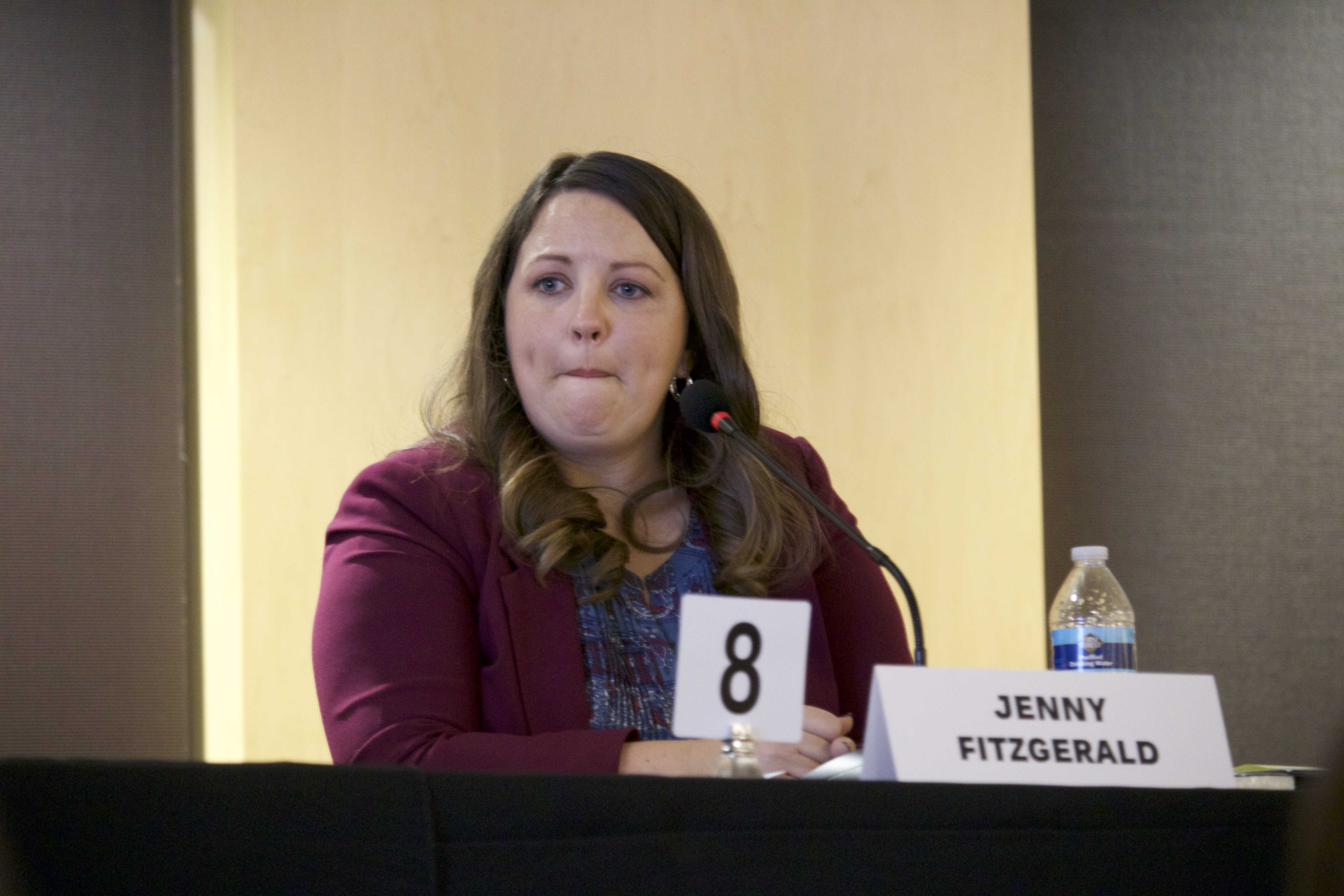
Jenny Fitzgerald
In her opening statement, Fitzgerald, a practicing attorney who has two children in CVUSD, discussed the importance of the Nov. 6 vote, calling it an opportunity “to express through our vote the kind of school district we want to be.” She hopes to work collectively to address the issues the students are facing.
“I’m running to restore our community’s trust in our board and to put its focus back on the issues that are directly impacting our students,” said Fitzgerald. “The current culture of divisiveness is not what represents the Conejo Valley … I will combine my vested interests as a parent with my professional? skills to bring positive change to the adversarial board dynamic and focus on issues such as the identified achievement gaps among certain groups of students and resources needed to address our students’ social and emotional well-being.”
In response to the first question about inclusivity, Fitzgerald emphasized the importance of school as not only where students receive an education but also where they learn the social skills they will use later in life. She plans to work towards decreasing the identified achievement gap and places an emphasis on receiving feedback from teachers, parents and students.
“To me, inclusion is the notion that all students, whatever their abilities, language, cultures, background, should be valued and equal members of our community,” said Fitzgerald. “Each and every child has their own strengths and challenges, and our education system should strive to meet each child where they are at while at the same time providing all students the opportunity to achieve and grow together.”
Fitzgerald was asked how the board should work to use technology to make education more accessible and inclusive. She emphasized how the district needs to be proactive to make sure that it is complying with the law so that it can put the needs of the students first.
“As a parent of a special needs kid who is verbal but uses technology to relate to other children in a very meaningful way, … I see the value in that for special needs children,” said Fitzgerald. “As an attorney, my job is to avoid risk in a proactive way because when we don’t … it leads to legal fees — fees that are diverted, that could be used for actual services such as the technology in our children’s classes.”
The next question Fitzgerald answered asked about the disproportionately higher suspension rate for children with disabilities and her thoughts on “alternative forms of discipline.” She wants to increase the services offered by schools, decrease the student to counselor ratio and offer training for teachers and staff so they understand the needs of special needs children.
“The best alternative to discipline, in my mind, is starting from the beginning and looking at where are we going wrong with these kids,” said Fitzgerald. “Oftentimes suspensions with this group of children are a result of misunderstanding those behaviors and why they’re happening and what they mean and what those students need.”
Fitzgerald was asked what her vision for inclusion of all students would be. Expanding on what she mentioned earlier, she emphasized how she believes inclusion is “multifaceted.” She plans to make sure the district is meeting the needs of individual students because “not one of them is the same and not one of them has the same needs.” She also discussed the importance of building a community so that “our children are around other children who are different from them” so that they “know how to work with others who are different from them.”
The next question for Fitzgerald regarded what role she thought conflict and disagreement should play in the school board’s decision making process. She believes it is very important for people who come to the school board meetings with public comments to feel comfortable to share their comments and concerns with the board.
“We should be open to listening in a respectful, adult manner to people who disagree with our views and perspectives,” said Fitzgerald. “It’s how we learn more about things. As a board, this is one of the biggest changes I think we need.”
When asked about how high schools can better partner with community colleges, Fitzgerald explained how she went to community college for three years before going to UC Berkeley because she could not afford to go to a four year school.
“It was one of the best three years of my life,” said Fitzgerald. “They have so many resources at community college that students can be taking advantage of … We need to be educating our parents and our community about what community colleges truly offer to our students and also finding ways to incorporate college credit and the ability for our high school students to participate in the amazing programs that our local community colleges offer.”
For her individual question, Fitzgerald was asked about the changes that need to be made in the “culture and process” of the board. She emphasized the importance of an “open and supportive environment” for people to express their needs.
“First and foremost, we need to end our culture of divisiveness and the culture of fear that has been created in our community, and not just for people who have similar beliefs as I do,” said Fitzgerald. “When all parents are not listened to, when teachers are not listened to, when students are not listened to, we’re failing our kids.”
In her closing statement, Fitzgerald discussed how having a child with special needs has changed her outlook. When people would treat her son differently, she would feel hurt. However, she soon realized that it was better to utilize these “opportunities to engage with others in a productive manner” and have conversations.
“I realized that we generally cannot truly understand others unless we have walked in their shoes,” said Fitzgerald. “When we approach things in a less defensive manner, it often breaks down the barriers that prohibit us from hearing one another and learning from each other’s own experiences.”
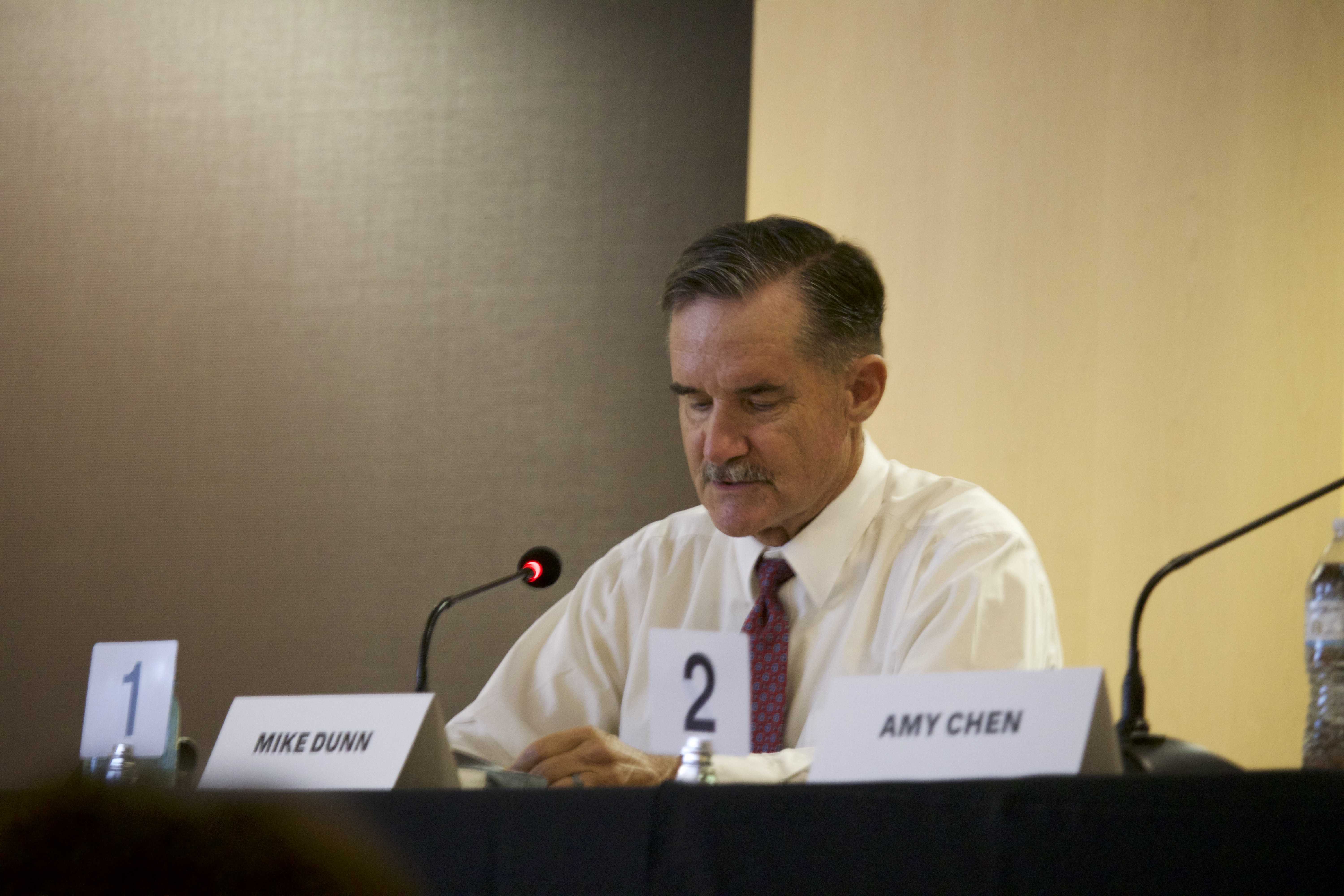
Mike Dunn
In his opening statement, Mike Dunn, who is running for reelection, discussed how successful CVUSD has been in recent years, including its ranking as the best school district in Ventura County and within the top five percent in the country. He listed some of the accomplishments of the school board since the last election, including saving Carden Conejo School and relocating Conejo Valley High School on-time and under budget.
“Our reputation benefits the local economy and benefits real estate values,” said Dunn. “Our students get into the best universities and great jobs. Since the last election, we have made a great school district even better … Re-elect Mike, and we will continue to have the best school district in Ventura County.”
Each candidate was asked the same first question — what is his/her definition of inclusion and what are his/her metrics of success? Dunn discussed what the district is currently doing to increase inclusion, such as providing training on the least-restrictive environments to principals and vice principals, giving the community the opportunity to participate in a special education district advisory council and constructing a new building for paraprofessionals and paraeducators. He emphasized how his wife, a special education teacher, updates him daily on what special education students need.
When asked how he would solve the problem of CVUSD’s second-highest ethnic population — Hispanic and Latino — being clustered at certain schools in the district, Dunn emphasized that one of the reasons why CVUSD is ranked so highly is “our attitude towards English language learners.”
“We spend an average of $1000 more per Hispanic student than we do on the students who are not in Title I schools,” said Dunn. “But here’s the problem. If that student were to leave, say, Conejo Elementary School and go to, say, Banyan, the money does not follow the student. One of the things we are advocating at the district-level and lobbying for both in Sacramento and in Washington, D.C. is for the money to follow the student.”
Dunn was later asked about the problem of declining enrollment: if the students were the customers of the school district, would focusing resources on improving the schools or seeking an increase in volume of students be more effective?
“I’m going to make a commitment to the parents and taxpayers … I will not vote to close another elementary school,” said Dunn. “We need to implement more programs like we have right now at Ladera. At Ladera, we just started a new magnet school called the STAR Academy, and I’m optimistic that the STEM academy will reverse our declining enrollment.”
In response to a question about the role the board plays in the adjusted Local Control and Accountability Plan goals, Dunn expressed his desire to “hire excellent people and then … leave them alone.” He believes that the school board has hired such people, including assistant superintendent of business services Victor Hayek, superintendent Mark McLaughlin and assistant superintendent of instruction Lou Lichtl.
When asked about how the board can best destigmatize and help support students’ mental health, Dunn discussed the district’s anti-bullying rules and the process a student can go through to report bullying or behavior that makes them feel threatened.
“The district wants all students to be able to come to school and be comfortable,” said Dunn. “There are very strict policies against bullying, harassment and hazing. Any student who feels they have been a victim or is made to feel uncomfortable on any one of our campuses can complain to either any district employee or a teacher. Once that complaint is made, it becomes a uniform complaint that can be appealed all the way to the [U.S.] Supreme Court.”
Dunn was asked how he would ensure that the district’s policies are carried out and goals accomplished. He responded by saying that he stays apprised by listening. His primary goal is to represent the people in the community as a “strong advocate for everyone in this community, including the home schoolers, the charter schoolers and parents with children in private schools.”
“If someone sends me an email, I respond,” said Dunn. “If someone calls me on the phone, I return the phone call. I’m also willing to speak with anyone who walks up to me before or after a board meeting. I consider myself to be a parent and a taxpayer.”
For his individual question, Dunn was asked how he would support LGBT+ students. He emphasized how he believes “every student has a right to come to school and be comfortable and feel safe.” He “would encourage anyone who does not feel comfortable at school” to go through the official complaint process he previously discussed.
In his closing statement, Dunn discussed how the district has “much to be thankful for.” He explained the $51 million the district is currently using to improve technology in classrooms and the new Conejo Way philosophy, which was launched by McLaughlin to ensure “ideal academic outcomes for CVUSD students as teamwork, relationship building, trust and accountability are used to together lead the way into a bright future for the district and the families it serves,” according to the CVUSD website.
“For 14 years, I’ve helped make [CVUSD] the highest-ranked school district in Ventura County,” said Dunn. “I am optimistic. We are making a great school district even better.”

Dr. Amy Chen
In her opening statement, Dr. Amy Chen shared three things about herself: she has children in CVUSD, she is originally from Taiwan and lived in Paraguay before moving to the United States and she has a doctorate in pharmacy. Chen stated that she “will always put children first” and believes “in fiscal responsibility and transparency.”
“Having a background in the medical field, I will make sure I have the data and research before I make decisions,” said Chen in her opening statement.
In response to the first question regarding inclusion, Chen defined inclusion as “when a student with a need for individualized education instruction is included in the regular classroom and receives the services they need with[in] the classroom.”
Chen explained that she supported bringing people together from “all different backgrounds, abilities, beliefs and disabilities.”
If the school board received a donation of one million dollars, Chen would “focus on using it in the classrooms for the benefits of students.”
“In terms of determining exactly what programs and how to use it, I believe the board should not be making that determination by itself,” said Chen. “This is a collaboration. The board needs to represent the people, and they need to work with all stakeholders including the administration, principals, teachers and listen to parents to determine what is the best use and which programs to use it for in the classrooms.”
When asked how the district can do a better job of utilizing technology to make education more accessible and inclusive, Chen explained that the purpose of CVUSD’s schools is “to provide a free and fair education” to students.
“I would support any efforts to provide every assistance needed for every child,” said Chen. “Technology is one of the assistants needed … We should be able to provide that; we should prioritize the needs of the children in this district.”
Currently, CVUSD faces the problem of declining enrollment. According to Chen, CVUSD has lost about 4,000 students in the past 12 years.
“We have over 6,000 students that are not choosing our free public school education,” said Chen. “My goal would be to find out the needs of these families not choosing our public school education and to figure out how we can better serve them. I believe we need to be innovative and to have … more flexible alternatives.”
In another response to a question about district materials in other languages, Chen said board members would “need to make sure that all of our communications are translated in the languages that they need to be.”
Chen, when responding to a question about using school of choice to help with inclusion of children with disabilities, explained that Lisa Miller, assistant of student support services, is “working towards providing inclusion and that would include giving all our students a school of choice.”
When asked a video question by Avalon Nathan, a junior at TOHS, about how she would help set up all students to succeed after high school, Chen explained the need to focus on “providing equal opportunities” to all students.
“We need to help them achieve, to their highest potential, each of their gifts and talents,” said Chen. “Not every child wants to go to college — there are some very noble professions … There’s a lot of professions that we can offer our children … We need to offer those opportunities.”
Chen’s individual question asked how she would help students with behavioral issues. Chen responded by discussing the fourth LCAP goal — “the social, emotional and physical well-being for all students.”
“We need to enhance that through targeted actions and supportive, positive student outcomes,” said Chen. “That being said, I would support more counselors in a school, especially the Title I schools. I think that would help with a lot of these issues. Our role in the board is to represent the public, be an oversight committee, so we oversee the policies and we establish our expectations; our expectations then would be to serve these needs.”
In her closing statement, Chen discussed the diversity and perspectives she would contribute to the board. She also explained the need for responsible fiscal oversight of the budget.
“Each dollar is so important to the students that need it,” said Chen. “We can’t be wasting money.”
Chen expanded on her desire to do her best to help the students in the district.
“We need to be committed to providing the best to all our students; I want to use my skills to ensure the bright future of our schools for every student,” said Chen. “Everything about me is for the kids. I love our children and their education. I love and am thankful for our schools in our district.”
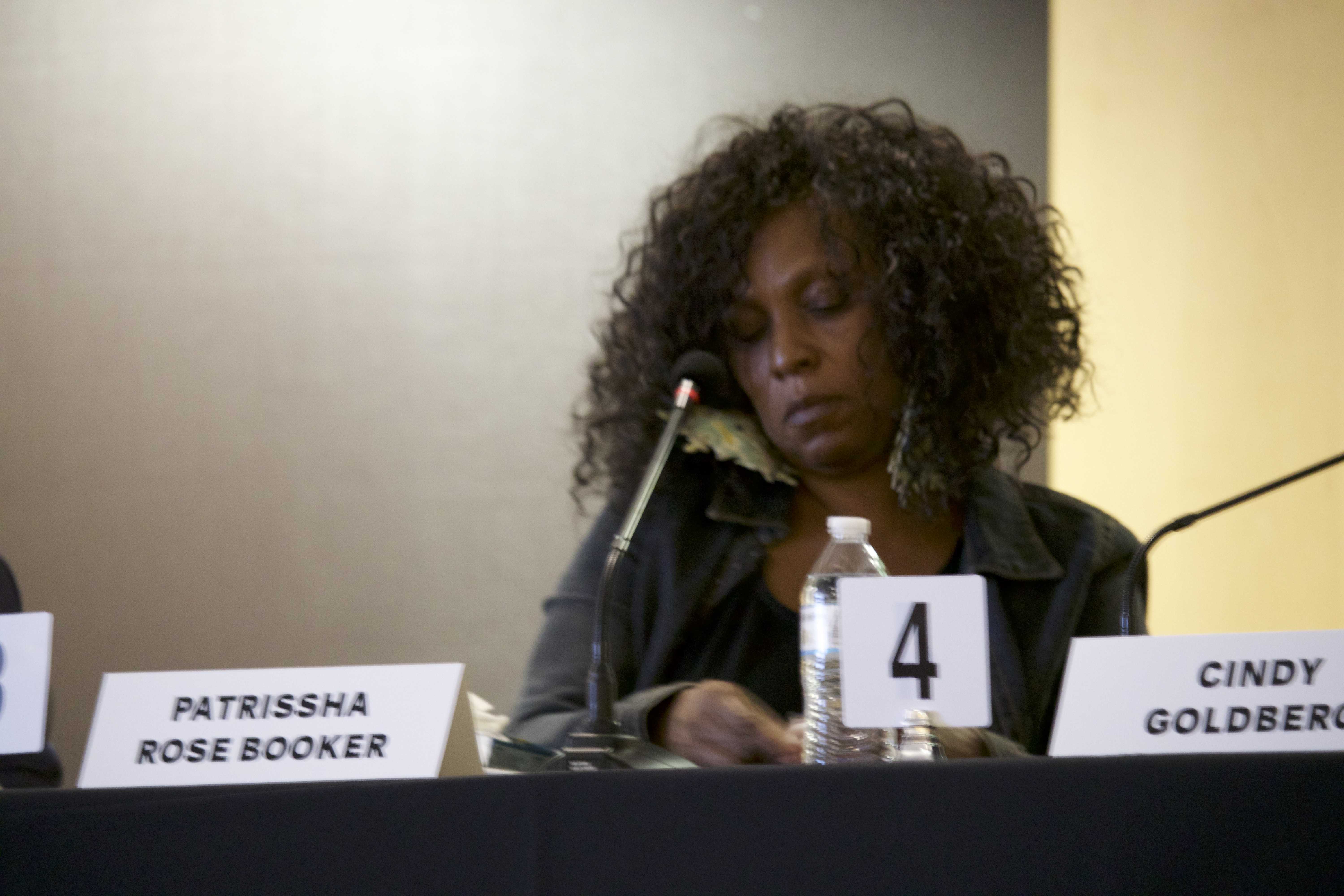
Patrissha Rose Booker
In her opening statement, Booker explained that she is running for a seat on the school board to be the “voice of the voiceless.” Booker, a 19-year resident of Thousand Oaks, explained that in the area where she lives, the local elementary school is low-ranking, and “that needs to be addressed.”
“Whoever thinks their voice is not being heard, I’m the person to come to because your voice will be heard,” said Booker.
When discussing the first question, about inclusion, Booker explained that she does not like to use the word “inclusion.”
“[The word inclusion] can be confining and then it can result in assimilation,” said Booker. “[Students] have to maintain who they are – their individual person that they are, and I just think inclusion is not a word that I would use because a lot of times students do assimilate to fit in.”
Booker also stated that classrooms need “to be diverse in every way — whether it’s ethnicity, religion … or whatever it might be.”
To help the four under-served groups of students in the district, Booker plans to collaborate with professionals.
“If a million dollars magically fell into the community, I would just work with professionals in education and government on a higher level to see what could be done to improve the schools that are not functioning well,” said Booker. “It’s beginning to be separate but equal — and it’s not deliberate — but it seems that the focus is on the schools that are achieving instead of the ones that are not.”
To address the inequity of the Hispanic population in Conejo Valley, Booker said that to see how to make changes, board members need to talk to the parents and students.
“I think instead of talking so much, people on the school board should go out to those communities,” said Booker. “They can even come to the complex I live in — it’s mostly Hispanic… Talk to those parents. That’s where you’re going to find change.”
When asked about school safety, Booker praised the strong police presence on campus and said the next step was to “educate the students and the teachers.”
“My background is [that] I have an AA in sociology, a BA in social science,” said Booker. “I come from the people aspect of things, and you just have to teach people how to identify people that may be at risk of harming others or harming themselves.”
In Booker’s next question, about her vision of the inclusion of all students, Booker discussed embracing students’ individuality instead of letting them assimilate.
“When trying to include [students], they have to have their culture represented, and the way that’s done — whether it’s a special needs child or a person of color,” said Booker. “You bring in curriculum and literature and history and people to come in and speak to those students and to educate those teachers, so they are making sure they’re not just trying to assimilate the child instead of [respecting] their individuality.”
To incorporate the student voice in board decisions, Booker proposed a board meeting once a month to hear only student voices.
“One of the reasons I decided to run [is] because I noticed that the voice of the students was not being heard or attentively listened to by the board members, and I think that’s a big mistake,” said Booker. “I think there should be at least one board meeting a month that is for the students. I mean the public would be welcome, but the students would have the floor for public comments.”
Booker also proposed the idea of letting students vote in school board elections.
“I also think there should be an exception made by the state that students can vote at 16 to vote for who they want to sit on the school board because they are our future, and they should be more involved,” said Booker.
When asked how she would ensure that board policies are effective and that goals are accomplished, Booker said, “I would be asking questions and involved in all the details.” If a problem occurred, she would discuss with her fellow board members.
Booker also suggested that “legal counsel be present when there’s issues about policy.”
“If there is no legal counsel present, the school [board] is going to eventually face a lawsuit,” said Booker.
For her individual question, Booker was asked how she would encourage the district to reach middle achieving students.
“I encourage the district to go out to homes and speak to the parents because a lot of parents do not show up to school board meetings,” said Booker. “I notice a lot of African-American parents don’t show up, a lot of Hispanic parents don’t show up, and that’s a problem for me.”
Booker would advocate for direct involvement of board members talking with parents; she would act as a mediator. Even if Booker is not elected, she “still will advocate for all students regardless.”
“If you need me, a school board member needs me, … I’ll be there,” said Booker. “I’ll go with you [to talk with a parent].”
In her closing statement, Booker explained that although she is not informed on “everything school board,” she is running for the people.
“I’m a fish out of water,” said Booker. “I come from a human perspective. I care. I care about people. Some people say it’s a blessing; I say it’s a character flaw because it is difficult and that’s why I’m running.”
Booker explained that no matter what happens in the election, she will help make people’s voices heard.
“My name is last on the ballot, it will probably remain last on the ballot when the votes come out,” said Booker. “But the reason I’m running is if anybody here gets on the board remembers anything I said and says, ‘well, Patrissha had a good idea, let me see if I can implement it.’ And if anybody feels their voices aren’t being heard … come to me. I’ll make sure your voice is heard, and my son will tell you that.”
*Note: The candidates are listed in reverse alphabetical order.
